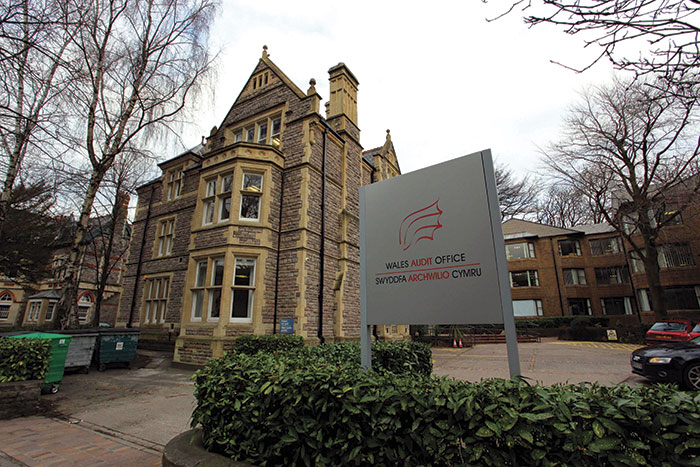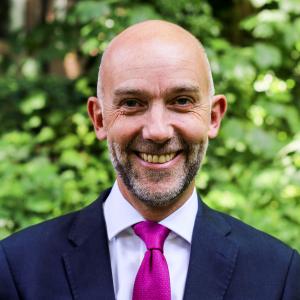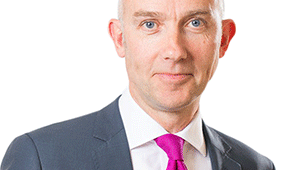
Audit, inspection and regulation aren’t words I’d naturally have associated with transformation and forward thinking when I took up the role of auditor general for Wales a few months ago.
But, I was delighted to find out, when I joined, that the Wales Audit Office is modernising and transforming and is ambitious to do more.
These are tough times and so, just like everyone else in public service, auditors need to be moving with the times.
The population in Wales is increasing.
People are living longer. Public finances are stretched, and we face economic uncertainties that come with Brexit.
There’s an urgent need for transformation and I know that public bodies are all working hard to find sustainable solutions to these challenges.
While there aren’t many quick fixes, there are signs of an encouraging shift in thinking around public service, which shows there are grounds for optimism.
I’m talking about a bundle of ideas that fit loosely under the terms of ‘complexity or systems-thinking’.
These ideas are based around the view that the traditional ‘command and control’ approach is not right for much of what government wants to do today.
Increasingly, people are looking at adaptive approaches – where public services are organised around what matters to the service user or citizen. We’re seeing some of the key ideas and language of systems thinking starting to be written into Welsh Government strategies and legislation – like the Social Services and Well-being Act.
It’s a huge but exciting shift in the mindset of policy makers. Wales has a vision for ‘One Public Service’, where the user experiences a seamless service across functional barriers. But we’re a long way from that and the functional boundaries still dominate.
“In the spirit of co-production, I want us to do more of our work ‘with’ organisations, rather than ‘to’ them.”
So, where does the Wales Audit Office fit into all of this? Well, if public services are going to be delivered in different ways - we need to be auditing differently as well. We need to start asking different questions.
Instead of: ‘Are you meeting your targets?’, we may want to ask:
• “Do you know what matters to your service users? or
• “How are you collaborating to help with the things that matter most to them? or
• “What are the systemic barriers that stop you from doing the right things for the people your serve?”
Of course, we need always to protect our independence. But in the spirit of co-production, I want us to do more of our work ‘with’ organisations, rather than ‘to’ them.
For example, our approach to auditing how public bodies are responding to the Well-being of Future Generations Act involves running workshops with them and involving them in designing and developing their own improvement actions in response to our findings. We’re also continuing to increase our focus on the service user and using their direct experiences to inform our audits.
Greater collaboration is also increasingly important in our audit work. So, for example, we’re conducting a review of Youth Services across Wales and working with the 3 other inspectorates – Estyn; Healthcare Inspectorate Wales and the Care Inspectorate Wales. Each of us has conducted our own reviews under our respective remits and powers – but we’re looking at a common theme in partnership.
Investing in the future is also key. We’re proud to be part of the Finance Skills Development Group – which is a partnership of public bodies and sectors across Wales - focusing on developing the skills and capacity of the next generation of public finance professionals. So, yes, we are focused on modernising audit.
The Wales Audit Office is investing in data analytics and looking at how this can make our work smarter and more efficient whilst also giving greater insight from the work we do. For example, we’re looking at using analytics to paint a complete picture of different geographical areas in Wales.
We want to be able to tell a full story of a community – by pulling together demographic data, information on education standards, health care provision and local government statistics. Data analytics can also provide us with a very early picture of the financial state of accounts in an organisation - almost immediately after an audit has started.
Underpinning all of this, of course, is the growing recognition by those who set the audit standards that data analytics and other emerging technologies can be powerful tools to enhance audit quality.
This will help to strengthen our position as an independent and authoritative voice in Wales, which is so important in a world where information abounds, yet public debate is not always well informed.
There are very few issues relating to our public services where the Wales Audit Office does not have serious expertise or relevant information and insight. So, I want us to be visible and trusted commentators on issues of public service provision and spending.
I am building from a strong base but will be challenging myself and my teams to see what more we can do. I want people to associate the Wales Audit Office with encouraging more ambition in how services are designed, commissioned and delivered.
And likewise, we need to transform the way we work with others - in providing effective support and challenge to encourage improvement.
In the words of Albert Einstein: “We cannot solve our problems with the same thinking we used when we created them.”
Adrian Crompton was a speaker at the CIPFA Wales conference yesterday.




















